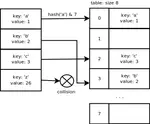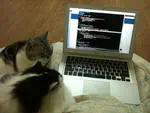Sitt.me is a community-based babysitting service that has a mobile platform. We had a team of professionals, including a project manager, a designer, a quality assurance expert, and developers: backend, frontend, and mobile.
Achievements
- I’ve designed and implemented some cool features like in-app notifications and video calls.
- I helped deploy 24 services in a private Kubernetes cluster for production and staging environments.
- I’ve automated the CI/CD process to allow the team to test and deploy faster.
- During my time here, I detected and solved some issues with our services.
- Additionally, I mentored both back-end and front-end developers.
Technology
- Golang, Bash, Ruby, ReactJS, SQL; PostgreSQL DB, Redis, Maria, RabbitMQ, Firebase; Jira, Confluence, GitLab
- Engineering: Kubernetes, Docker, GitLab CI, ELK, Helm





